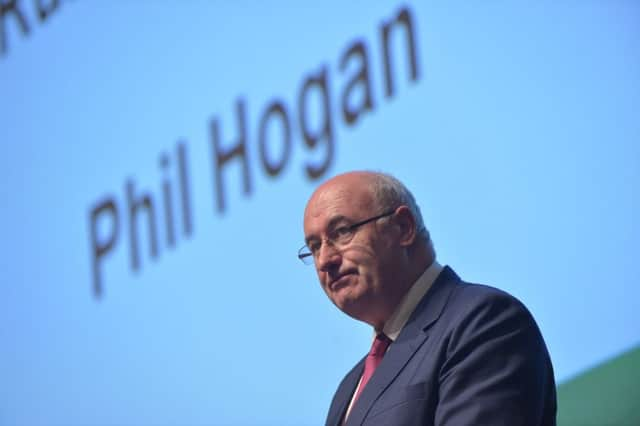Lack of plan B is major problem


This seems akin to the old adage of lunacy being defined as doing the same thing over and over in expectation of a different outcome. The bottom line on Brexit remains that there is still no Plan B to break the deadlock; all the options are still with us, from remaining in the EU, through a no deal Brexit to a general election and a new government.
That this should be the situation almost three years after the referendum is a disgrace. Changing the leader of the Conservative party will not alter the facts, and even the boldest punter would not bet on any particular outcome.
Advertisement
Advertisement
Next week’s European elections will increase the political chatter about Brexit – but no matter how bloody the nose they deliver for the government, and possibly Labour too, we will be no closer to a solution. That is further evidence that politicians find it impossible to compromise, and not only in Northern Ireland. Historians may well look back on 2019 as the time when the traditional two-party system ended; ironically we may be on the road to a European-style government, based on uneasy and unstable coalitions.
In uncertain times at least one group of farmers secured some certainty this week. Irish beef farmers are to receive 50 million euro from Brussels and a similar amount from their own government, because of heavy losses as a result of Brexit uncertainty. This is partly down to the steady decline in the value of sterling, but it is evidence that Brussels is ready to step in if Brexit damages agriculture in the EU-27.
All credit has to go to farm commissioner, Phil Hogan, the Irish Farmers Association and Irish government for securing this deal. Given the complete lack of interest in agriculture at Westminster we can only look with envy at this decision. There will be no cavalry riding over the hill to rescue UK farming. By contrast the EU has now established the principle that it will support agriculture in EU-27 member states that suffer as a result of Brexit.
It is no surprise that Ireland secured this support. For years it been a given in the EU that Ireland and France will fight for farmers’ interests. However if farmers here feel they have been abandoned by politicians over Brexit, farmers in France must be feeling equally let down by their government.
Advertisement
Advertisement
We have all looked with envy at the influence of French farmers. Politicians from left and right saw a profitable farming industry as the best way to look after France’s massive rural areas. It is no coincidence that France is the biggest beneficiary of CAP funding, with successive governments making sure the policy was a good fit for French agriculture.
Now its president, Emmanuel Macron, is determined to take farming down a different and much greener road. His agriculture minister has confirmed plans to ban glyphosate by 2021; it will also drive a 50 per cent reduction in pesticide use in agriculture by 2025. That this has not resulted in howls of protest from the French farming lobby is surprising. This is a huge threat to the progressive and profitable French grain producing areas that are some of the best in Europe. However the message from government is clear. The priority is no longer big scale agriculture but smaller farms it deems more sustainable.
When the United Nations recently published a report outlining the threat it believes agriculture poses for biodiversity Macron’s response was interesting. In the past France would have paid lip service to such a report, mindful that it must not undermine French agriculture. However this time France claimed the CAP must change to take account of this report, by making sustainability central to its agenda.
Macron is deeply unpopular and presumably believes that burnishing his green credentials will restore some of the enthusiasm that brought him to power. That he should take on and seemingly emasculate the French farming lobby is a shock. It is also further evidence that the green lobby is increasingly trumping the economic case for progressive farming, be that in Paris, London or Berlin – indeed just about anywhere but Dublin.